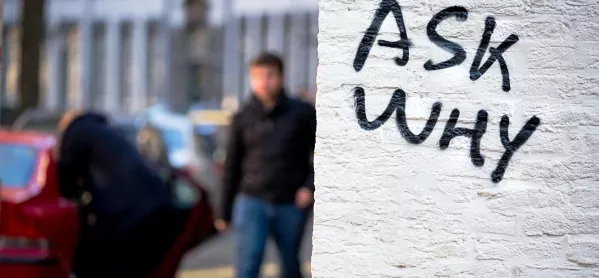Why is questioning important?
Questioning is the most common form of interaction in the classroom. It underpins much of what happens during a lesson and can be a powerful tool for assessing and developing learning.
How can it be used in lessons?
The types of questions, and strategies for implementing them, should be planned before lessons and designed to facilitate progress, just like any other classroom activity. When questions are used in a superficial way, they tend to call only for lower-order thinking and recall skills.
Instead, teachers need to prompt debate and the development of ideas and understanding. This could be achieved by:
- Asking open-ended questions that instruct students to further think about the ideas or details being offered. By avoiding closed, factual-recall style questions, teachers can encourage more creative, critical thinking, which makes students more confident in their answers.
- Avoiding hands-up volunteering or calling out answers. Questions should be targeted and differentiated if they are to develop each student. By planning key questions in advance, teachers can scaffold the learning taking place, and support and extend pupils, depending on their needs and levels of progress.
- Ensuring that thinking time is provided. If the desired response is one that shows deeper understanding and requires students to interrogate and synthesise, then suitable time needs to be offered for this. Pupils could think individually for a few minutes or time may be given over to paired or small-group discussion. The “think-pair-share” method is often used to encourage quick and informal discussion of ideas, while giving pupils Post-it notes or mini-whiteboards to craft short responses means they can be more active.
- Trying unusual, speculative or even ridiculous questions to challenge pupils in their thinking and approach. Teachers might pose questions with an “if” beginning, ask something that requires speculation and a change of perspective, or even reverse the question entirely by offering the answer(s). All of these approaches will take students beyond their comfort zone and encourage critical and evaluative thinking.
Further reading:
Teaching.org website: 5 Questions to Tackle in Using Questioning and Discussion Techniques.




